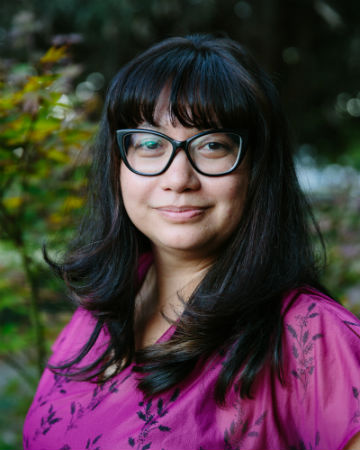By Aaron Heshel Silverman
September 5, 2017
Vanessa Gomez Brake is the new associate dean of religious life at the University of Southern California. She is the first humanist chaplain to serve in this capacity at any American university.
I first met Vanessa Gomez Brake in the fall of 2014, as she began her position at the Office for Religious Life (ORL) at Stanford University. Similarly, I had just started my first term as the president of Atheists, Humanists, and Agnostics (AHA!), Stanford’s non-theist student organization. Despite being busy acclimating to her new work, Vanessa took the time to reach out to me as a nontheist student leader. One might imagine that, on a campus teeming with secular students, I already had support from the incumbent religious life staff. I quickly discovered that this was not the case, and having an ally in Vanessa was indispensable.
Vanessa used her role, knowledge of conflict resolution, and connections through the Bay Area Humanist community to offer fresh ideas to our student organization and to support diversity within the group. For example, at the beginning of one school year, she suggested we consider offering humanist programming alongside the many monotheistic worship services during Stanford’s new student welcome week. What followed was a scenario with which many humanists and religious minorities may identify; our non-worship service was rejected on the grounds that it conflicted with other, more “legitimate” welcome week events. Nevermind the underlying assumptions of the hegemonic Abrahamic religions that had already structured our understanding of a “week” as one that sets aside Fridays, Saturdays, and Sundays for religious observance. Of course there were no welcome week events that conflicted with the many monotheistic worship services—our university had already taken for granted that welcome week events ought to be planned around them! Vanessa helped to challenge these prevailing assumptions among religious life staff and won AHA! the opportunity to provide humanist programming on equal footing with the predominant religious groups on campus.
Furthermore, Vanessa helped design and implement a number of discussions between AHA! and other religious groups on campus. There are two reasons why I find this to be particularly important: first, humanist participation in interfaith activities helps to introduce more people to the humanist philosophy, as well as broaden their perceptions of what counts as a life worth living. Secondly, it forces theists to engage and contend with humanist ideas, which ultimately reveals that many of the same underlying values motivate our diverse perspectives.
So, imagine my excitement when I learned that Vanessa had been offered an associate deanship in the Office of Religious Life at the University of Southern California. Think of it, the first humanist dean of religious life at any major American university. Humanists should be very excited about this historic appointment, as the implications are considerable. From the perspective of a former student leader, you can rest assured that nontheistic organizations will be given equal consideration with theistic organizations for time and resources. From the perspective of a humanist student, consider how refreshing it will be not to have to justify your ideas as meaningful, thoughtful, and moral to a university that has enshrined a narrow conception of the good, the true, and the beautiful.
USC has made a profound choice in forging the future of its understanding of religious life to not just tolerate, but to include non-theistic perspectives. USC’s Dean of Religious Life, Varun Soni, said that “we are at a unique moment in American religious history as the fastest growing religious demographic are those who are unaffiliated with formal religion. More than one-third of our university students are not affiliated with formal religion, and that number gets bigger every year.” Other universities should take note. These students will continue to need a communal structure within which to forge their own identities, and deans of religious life such as Vanessa Gomez Brake are well-positioned to meet that need.


